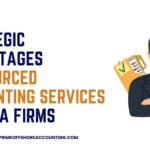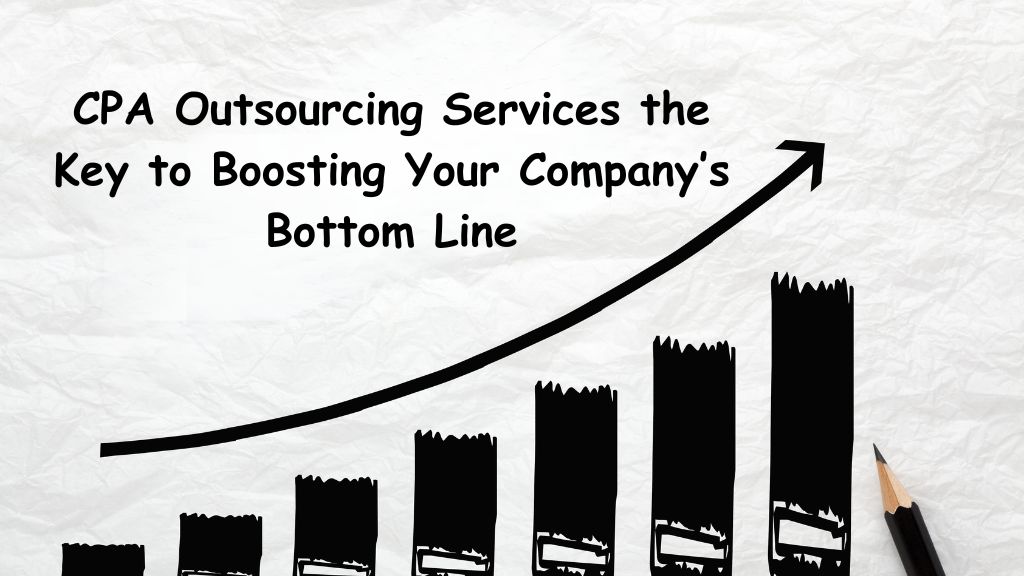Table of Content
- 1 Key Takeaways:
- 2 What is CPA Outsourcing for Tax Preparation?
- 3 Benefits of Outsourcing Tax Preparation
- 4 Factors to Consider When Outsourcing Tax Preparation
- 5 How to Outsource Tax Preparation?
- 6 Best Practices for Successful CPA Outsourcing
- 7 Facts About CPA Outsource Tax Preparation:
- 8 Frequently Asked Questions
- 8.1 1. Can outsourcing tax return preparation help me save time and money as an accounting professional?
- 8.2 2. How can outsourcing tax preparation benefit my accounting firm?
- 8.3 3. What is the process of outsourcing tax preparation?
- 8.4 4. Can I customize the outsourcing services to fit my budgetary needs?
- 8.5 5. How can I evaluate the outsourcing services before committing?
- 8.6 6. How can outsourcing tax preparation contribute to work-life balance for accounting professionals?
Outsourcing tax preparation to CPAs is a strategic choice made by businesses and individuals to entrust their tax-related responsibilities to external professionals or firms. This strategy enables them to streamline their financial procedures and ensure compliance with tax laws and regulations.
By relying on certified CPAs (Certified Public Accountants) for tax preparation, individuals and businesses can leverage their expertise and concentrate on their primary activities..
This article will guide you through the advantages of outsourcing tax preparation, key considerations for outsourcing, the process of outsourcing, and the recommended practices for successful CPA outsourcing. Upon reading, you will gain a thorough understanding of outsourcing tax preparation and how to harness its advantages.
Key Takeaways:
- Outsourcing tax preparation offers cost savings: By enlisting the services of a CPA for tax preparation, businesses can sidestep the need to hire full-time staff and diminish overhead costs. This enables them to allocate resources more effectively.
- Access to tax law and regulation expertise: CPA outsourcing grants access to professionals who possess deep knowledge of intricate and evolving tax laws. This ensures precise and compliant tax filings.
- Enhanced efficiency and concentration on core activities: Outsourcing tax preparation enables businesses to concentrate on their primary strengths and strategic endeavors, thereby conserving time and energy. This can result in improved overall performance and expansion.
What is CPA Outsourcing for Tax Preparation?
Outsourcing tax preparation to Certified Public Accountants (CPAs), or hiring external CPAs, involves entrusting tax-related responsibilities to a third-party CPA firm. This strategic decision enables businesses and individuals to handle their tax obligations with greater efficiency and effectiveness.
By outsourcing tax preparation, companies can benefit from the expertise and profound knowledge of experienced CPAs. It enables them to navigate complex tax laws and regulations with more effectiveness.
Outsourcing not only guarantees precise and punctual filing but also enhances tax planning strategies to boost deductions and reduce liabilities. Moreover, it allows companies to concentrate on their core accounting functions and enhance overall productivity.
This method is particularly advantageous for small businesses or individuals without the internal knowledge or resources to manage tax affairs proficiently.
Benefits of Outsourcing Tax Preparation
Outsourcing tax preparation offers advantages such as cost reduction, improved productivity, access to specialized knowledge, and the opportunity to concentrate on essential business tasks.
This section explores the reasons behind the growing popularity of outsourcing tax preparation by examining its benefits in detail.
Cost Savings
When considering outsourcing tax preparation, one of the main advantages to keep in mind is the potential cost savings.
There are several ways in which outsourcing tax preparation can lead to cost savings:
- Reduced labor costs: By Outsourcing, you can avoid expenses associated with hiring and maintaining an internal tax preparation team, such as salaries, benefits, training, and office space.
- Elimination of software costs: Outsourcing providers typically have their own tax software, eliminating the need for your firm to invest in costly updates and licenses.
- Lower overhead expenses: With Outsourcing, you can decrease overhead costs related to office supplies, equipment, and utilities.
- Flexible pricing options: Many outsourcing providers offer adaptable pricing models, enabling you to select a plan that matches your budget and pay only for the required services.
- Increased operational efficiency: Outsourcing tax preparation allows your firm to focus on core business activities, leading to improved productivity and revenue generation.
By thoughtfully evaluating these benefits in relation to cost reduction, you can make a well-informed choice regarding outsourcing tax preparation, potentially leading to substantial financial gains for your company.
Access to Expertise
- Access to skilled personnel: Outsourcing tax preparation grants access to a team of competent professionals with expertise in tax compliance and regulations.
- Expertise across various tax domains: Outsourcing allows access to a diverse group of tax specialists proficient in areas like corporate tax, international tax, and individual tax.
- Keeping abreast of tax regulations: Outsourcing firms’ tax professionals are well-informed about the latest tax laws and regulations, ensuring accurate and compliant tax returns.
- Effective tax planning: Leveraging expert advice, outsourcing facilitates efficient tax planning strategies, including optimizing deductions, managing tax liabilities, and identifying tax-saving opportunities.
- Adaptability and versatility: Outsourcing offers the flexibility to adjust tax preparation services according to business demand, allowing for efficient scaling up or down based on requirements.
Increased Efficiency
Outsourcing tax preparation services can significantly boost efficiency for accounting firms of all sizes. Here are several ways in which Outsourcing can help increase efficiency:
- Quick Turnaround Time: Outsourcing tax preparation allows for faster completion of workload, ensuring that tax returns are submitted on time and contributing to increased efficiency.
- Access to Expertise: By partnering with a qualified and experienced team of tax professionals, Outsourcing provides access to specialized knowledge and expertise, leading to increased efficiency.
- Reduced Workload: Delegating tax preparation tasks to an outsourcing partner frees up valuable time for in-house staff to focus on principal business activities and achieve increased efficiency.
- Scalability: Outsourcing offers the flexibility to smoothly scale up or down as needed, accommodating fluctuating workloads during busy tax seasons and ensuring increased efficiency.
- Advanced Technology: Outsourcing providers invest in the latest tax software updates and technologies, ensuring efficient and accurate tax preparation and contributing to increased efficiency.
Pro-tip: Prioritize regular communication and collaboration with your outsourcing partner to streamline processes and maximize efficiency, resulting in increased efficiency.
Focus on Core Business
Outsourcing tax preparation provides a significant advantage: the ability to prioritize your core business activities, allowing you to focus on generating revenue and attaining a healthy work-life balance. Here are some key factors to consider:
- Identify Your Needs: Determine what specific tax preparation tasks you want to outsource and the required support level.
- Research and Shortlist Service Providers: Conduct thorough research to find reputable and reliable service providers specializing in tax preparation outsourcing.
- Evaluate Service Providers: Assess the qualifications, expertise, and experience of potential service providers to ensure they meet your requirements.
- Finalize and Establish the Outsourcing Relationship: Once you have selected a suitable service provider, finalize the outsourcing agreement and establish a strong partnership.
To ensure successful CPA outsourcing, focus on your primary business areas and follow these best practices:
- Clearly Define Scope and Expectations: Clearly communicate your expectations and define the scope of work to avoid any misunderstandings.
- Maintain Regular Communication: Regularly communicate with your service provider to stay updated on progress and address any questions or concerns.
- Monitor and Review Performance: Continuously monitor and review the performance of your chosen service provider to ensure quality and efficiency.
- Address Any Issues Promptly: If any issues arise, address them promptly and effectively to maintain a smooth outsourcing relationship.
By focusing on your core business and following these best practices, you can optimize the benefits of outsourcing tax preparation.
Factors to Consider When Outsourcing Tax Preparation
When contemplating the outsourcing of tax preparation, various important factors should be taken into account. These factors encompass proficiency and background, safeguarding of data, economical viability, communication, adaptability, and versatility. By taking these aspects into consideration, you can guarantee a seamless and prosperous collaboration with a reputable CPA firm.
- Expertise and experience: It is important to choose a firm with a proven track record in tax preparation and a team of qualified professionals.
- Data security: Ensure that the firm has robust security measures and protocols in place to safeguard your sensitive financial information.
- Cost-effectiveness: Compare pricing models and choose a firm that offers competitive rates without compromising quality.
- Communication: Effective communication is paramount for a successful outsourcing relationship. Therefore, choose a firm that is responsive and reliable.
- Scalability and flexibility: Consider the firm’s capacity to accommodate your changing needs and handle increasing volumes during peak tax seasons.
In the past, numerous businesses have discovered that outsourcing tax preparation not only saves time and effort but also grants access to specialized expertise and simplifies procedures. By evaluating these factors, you can make a well-informed decision for your business and reap the rewards of outsourcing tax preparation
How to Outsource Tax Preparation?
Are you looking to outsource your tax preparation? Here’s the scoop on how to do it seamlessly.
First, we’ll guide you through identifying your needs, ensuring you find the perfect fit. Then, we’ll dive into researching and shortlisting service providers, ensuring you have a solid list to choose from. Next, we’ll help you evaluate these providers to make an informed decision.
We’ll show you how to finalize and establish a strong outsourcing relationship. Let’s get your tax prep outsourced with ease!
Identify Your Needs
When considering CPA outsourcing for tax preparation, it is imperative to identify your specific needs in order to ensure a successful partnership. Here are the steps that can help you identify and address your needs, enabling you to make well-informed decisions:
- Assess Your Workload: Evaluate the quantity and intricacy of your tax preparation tasks, determining if you need assistance during busy periods or year-round.
- Identify Expertise Gaps: Determine where you lack expertise or resources, which could involve staying current with tax laws, managing specialized tax credits, or handling complex tax returns.
- Review Your Budget: Consider your financial limitations and the cost savings you aim to achieve through outsourcing.
- Prioritize Your Needs: Decide whether you need comprehensive services or specific tasks like data entry, reconciliation, or software updates.
- Address Security and Confidentiality: Evaluate the sensitivity of your client data and specify the level of security required from potential outsourcing partners.
By accurately pinpointing your requirements, you can effectively communicate them to potential service providers and select the one that best meets your needs and goals.
Research and Shortlist Service Providers
When outsourcing tax preparation services, it is important to conduct thorough research and carefully select potential service providers. Here are some steps to guide you through this process:
- Identify your needs: Begin by determining the specific requirements for outsourcing your tax return, including the necessary level of expertise and the volume of work.
- Conduct research and shortlist service providers: Look for reputable outsourcing firms specializing in tax preparation services. Take into consideration important factors such as their experience, client reviews, and the range of services they offer.
- Evaluate service providers: Assess the shortlisted providers based on criteria such as their qualifications, reliability, security measures, and communication capabilities. It can be helpful to request references and client testimonials to obtain a better comprehension of their performance.
- Finalize and establish the outsourcing relationship: Once you have selected a service provider, negotiate the contract terms and ensure that both parties have a clear understanding of the scope of work and expectations.
Choosing a service provider that aligns with your business goals and values is crucial. Make sure to prioritize qualities such as expertise, efficiency, and confidentiality to establish a successful outsourcing partnership.
Evaluate Service Providers
To evaluate service providers for outsourcing tax preparation, follow these steps:
- Conduct thorough research to identify potential service providers that offer tax preparation services. Look for firms with a strong reputation and extensive experience in this field.
- Assess the qualifications of the service providers. Ensure they have qualified staff and knowledgeable tax professionals well-versed in tax laws and regulations.
- Consider the reputation and reliability of the service providers. Look for reviews or testimonials from previous clients to measure their performance and dependability.
- Pay attention to communication and language skills. It is important that the chosen service provider has clear communication channels and can effectively communicate in the desired language.
- Compare pricing structures and contract terms of different service providers. Take into account the scope of services offered and any additional fees to make an informed decision.
- Based on your evaluation, create a shortlist of potential service providers that meet your criteria and requirements.
- Conduct interviews or consultations with the shortlisted providers to comprehend their approach and how well they align with your needs.
- After evaluating all the information and considering factors such as qualifications, reliability, communication, and pricing, select the service provider that best fits your requirements.
Finalize and Establish the Outsourcing Relationship
Finalizing and establishing the outsourcing relationship for tax preparation is a crucial step in the process. Here are the steps to finalize and establish the outsourcing relationship:
- Clear Agreements: Ensure that all terms and conditions are clearly defined in a formal agreement. It includes the scope of work, deadlines, pricing structure, and any other specific requirements.
- Establish Communication Channels: Set up effective communication channels to ensure smooth collaboration. It can include regular meetings, email updates, or project management tools.
- Data Security Measures: Discuss and implement robust security measures to protect sensitive client data. It may involve signing non-disclosure agreements and adopting secure file-sharing protocols.
- Quality Control: Establish guidelines and procedures for quality control. It may include regular reviews and audits to ensure accuracy and compliance with tax regulations.
By following these steps, you can successfully finalize and establish a strong outsourcing relationship for tax preparation, ensuring efficient and reliable services.
Best Practices for Successful CPA Outsourcing
Outsourcing to CPAs can serve as a smart tactic to streamline operations and boost effectiveness. To ensure a fruitful partnership, adhering to best practices is essential. In this section, we’ll delve into key pointers that can significantly impact your outsourcing journey. From precisely outlining scope and expectations to fostering consistent communication, overseeing performance, and promptly resolving issues, we’ll examine the fundamental practices that contribute to a successful collaboration.
Clearly Define Scope and Expectations
Clearly outlining the scope and expectations is a pivotal stage in outsourcing tax preparation services. This crucial step guarantees alignment between the CPA firm and the service provider regarding partnership objectives and deliverables. With a well-defined scope, the CPA firm can effectively communicate the specific tasks, responsibilities, and timelines expected from the service provider.
To successfully define the scope and expectations, the CPA firm should specify the types of tax returns to be prepared, designate the tax software to be utilized, determine the required accuracy level and attention to detail, and consider any client-specific requirements or preferences. This comprehensive approach minimizes misunderstandings and enables the service provider to fully comprehend the expected service level.
Additionally, transparently communicating expectations for communication frequency, response time, and deliverable deadlines is equally vital. This open communication fosters smooth collaboration and workflow between the CPA firm and the service provider.
Thoroughly defining the scope and expectations enables CPA firms to fully leverage the benefits of outsourcing tax preparation, such as cost savings, access to specialized expertise, and heightened efficiency. Furthermore, it cultivates a sustainable outsourcing relationship and facilitates the achievement of desired outcomes.
Maintain Regular Communication
Maintaining regular communication is crucial when outsourcing tax preparation. It is essential to maintain effective communication channels to ensure a smooth workflow and timely updates on the progress of the tax preparation process. Here are some best practices to incorporate and maintain regular communication:
1. Clearly Define Expectations: It is important to establish clear expectations regarding the frequency of communication, preferred methods (emails, calls, or meetings), and the expected response time.
2. Set Up Communication Channels: Select and utilize efficient communication channels such as email, project management software, or video conferencing tools. These channels will facilitate regular updates and discussions.
3. Schedule Progress Meetings: Plan regular meetings to review the progress of the tax preparation work, address any concerns or queries, and provide feedback on the performance of the outsourced team.
4. Assign Dedicated Points of Contact: Designate specific individuals from both the outsourcing firm and the client’s team as points of contact. It will ensure consistent and prompt communication between the parties involved.
5. Encourage Open Dialogue: Foster a culture of open communication, where the outsourced team is encouraged to ask questions, seek clarification, and provide suggestions for refinement.
By maintaining regular communication, both parties can stay informed, address any issues promptly, and ensure a successful outsourcing experience for tax preparation services.
Monitor and Review Performance
For the success of your CPA outsourcing for tax preparation, it is imperative to monitor and review the performance of the service provider consistently. It can be accomplished through a structured and systematic approach that incorporates the following steps:
| Step 1: | Establish clear performance goals and expectations |
| Step 2: | Set key performance indicators (KPIs) to measure the provider’s performance |
| Step 3: | Regularly monitor the service provider’s performance against the set KPIs |
| Step 4: | Review the performance data and analyze the outcomes |
| Step 5: | Identify any areas for improvement or concerns |
| Step 6: | Communicate the findings with the service provider and promptly address any issues |
| Step 7: | Adjust the performance goals and expectations if necessary |
| Step 8: | Maintain continuous monitoring and review of the performance throughout the outsourcing relationship |
By maintaining consistent oversight and evaluation of performance, you can verify whether the selected service provider is adhering to the agreed-upon criteria and achieving the expected outcomes. This proactive stance enables prompt resolution of any issues and implementation of required enhancements, ultimately contributing to a positive CPA outsourcing experience.
Interesting Fact: Research indicates that companies that regularly monitor and evaluate their outsourcing performance are more likely to achieve their outsourcing goals and report greater satisfaction levels.
Address Any Issues Promptly
- Identify problems: Consistently monitor the outsourced tax preparation process to detect any potential issues or hurdles.
- Address issues promptly: Take immediate action by informing the service provider promptly about any problems or concerns.
- Provide necessary details: Clearly convey the problem’s specifics, including concrete examples or evidence, to help the service provider understand and address it effectively.
- Collaborate on solutions: Work jointly with the service provider to find solutions and resolve the issue promptly.
- Document the process: Maintain records of all communications and steps taken to tackle the issue, ensuring transparency and accountability.
- Review and analyze: After resolving the issue, conduct a review or analysis to identify any underlying causes or recurring patterns that can be addressed to prevent similar issues in the future.
- Continuous enhancement: Utilize insights gained from addressing issues promptly to improve the outsourced tax preparation process and fortify the outsourcing partnership.
Facts About CPA Outsource Tax Preparation:
✅ Outsourcing tax preparation can help accounting professionals save up to 50% on each tax prepared.
✅ By outsourcing tax preparation, accounting firms can add a proficient team of tax preparers and increase productivity and revenue.
✅ Prime Offshore Accounting offers tax preparers with varying degrees of experience, ensuring clients can find professionals suited to their needs.
✅ Prime Offshore Accounting is a platform that connects individuals and businesses with licensed CPAs based in the US for tax preparation outsourcing.
✅ Prime Offshore Accounting provides a comprehensive and secure outsourcing solution, offering additional support services such as client onboarding, secure chat, and utilization optimization.
Frequently Asked Questions
1. Can outsourcing tax return preparation help me save time and money as an accounting professional?
Indeed, entrusting tax return preparation to external services can lead to time and cost savings. By outsourcing to experts like Prime Offshore Accounting, you gain access to a proficient team of tax preparers and potentially save up to 50% on each tax prepared. This approach liberates your time for concentrating on other essential duties and enables a more effective allocation of resources.
2. How can outsourcing tax preparation benefit my accounting firm?
Outsourcing tax preparation offers numerous advantages to your accounting firm. It can enhance productivity and revenue generation by freeing up your in-house team to focus on more lucrative activities.
Furthermore, outsourcing provides access to the specialized expertise of experienced professionals and assists in managing intricate tax preparation requirements. Ultimately, it can streamline your workflow and foster the expansion of your firm.
3. What is the process of outsourcing tax preparation?
The process of outsourcing tax preparation is straightforward. You can initiate the process by contacting Prime Offshore Accounting through their website, phone, or email.
They will discuss your specific requirements and provide a cost estimate based on various parameters. Once you agree to proceed, they will handle the tax preparation tasks from start to finish, ensuring high-quality standards and adherence to tax legislation.
4. Can I customize the outsourcing services to fit my budgetary needs?
Yes, Prime Offshore Accounting offers customized outsourcing services to fit your budgetary needs. They comprehend that each client’s requirements may vary, and they tailor their services accordingly.
The project’s pricing is calculated according to factors like the complexity of tax returns and the expertise level needed. This allows for efficient expense management while still taking advantage of outsourcing benefits.
5. How can I evaluate the outsourcing services before committing?
Prime Offshore Accounting provides a free trial for clients to assess the quality and efficiency of their tax preparation outsourcing. You can request an interactive demonstration of their tax filing platform, enabling you to experience their services firsthand.
These opportunities help you make an informed decision before committing to outsourcing your tax preparation workload.
6. How can outsourcing tax preparation contribute to work-life balance for accounting professionals?
Outsourcing tax preparation has the potential to enhance the work-life balance of accounting professionals. By assigning labor-intensive and repetitive tax preparation duties to external experts, individuals can dedicate their energy to more valuable tasks and carve out additional time for personal and career development.
This can alleviate stress and foster a harmonious work-life equilibrium, resulting in heightened job contentment and overall welfare.








